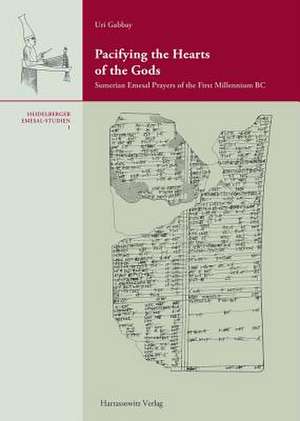Pacifying the Hearts of the Gods: Heidelberger Emesal-Studien, cartea 1
en Limba Engleză Hardback
Preț: 625.83 lei
Preț vechi: 772.63 lei
-19% Nou
Puncte Express: 939
Preț estimativ în valută:
119.75€ • 125.29$ • 99.48£
119.75€ • 125.29$ • 99.48£
Indisponibil temporar
Doresc să fiu notificat când acest titlu va fi disponibil:
Se trimite...
Preluare comenzi: 021 569.72.76
Specificații
ISBN-13: 9783447067485
ISBN-10: 3447067489
Pagini: 356
Greutate: 1.57 kg
Editura: Harrassowitz
Seria Heidelberger Emesal-Studien
ISBN-10: 3447067489
Pagini: 356
Greutate: 1.57 kg
Editura: Harrassowitz
Seria Heidelberger Emesal-Studien

